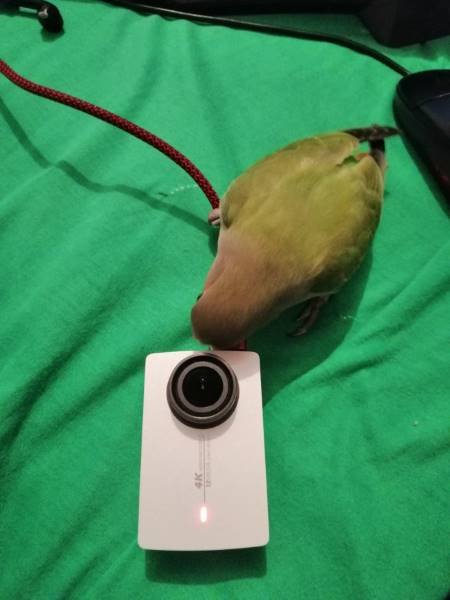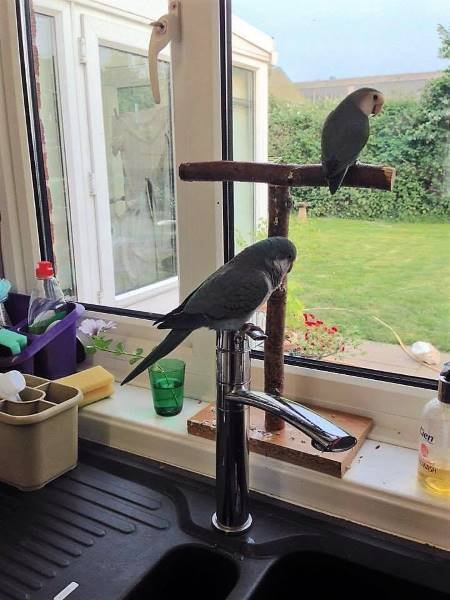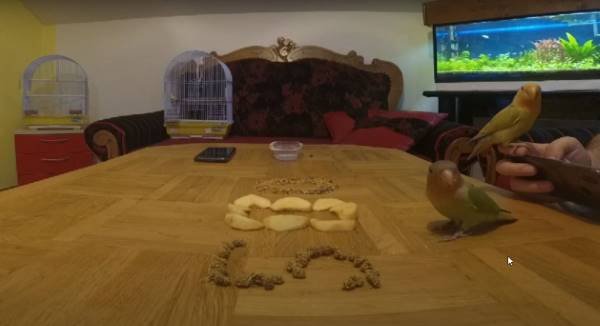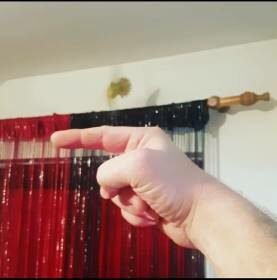Bringing home your new parrot is an exciting time, but it can also be a little nerve-wracking. You want to ensure that your home is safe for your new pet and that they feel comfortable in their new surroundings.
You can do a few things to make your home more bird-friendly, and if you take the time to prepare your home before bringing your parrot home, you can rest assured knowing that they will be safe and happy in their new environment. Here’s a guide to help you make your home more bird safe.
Fear
Because of their position in the hierarchy of nature as a vulnerable prey species, parrots have evolved to be very fearful creatures. This fear is what has helped them survive for millions of years. However, this same fear can also harm them in captivity.
Fight or Flight
In their natural habitat in the wild, Parrot instincts are sharpened to a degree where they will immediately flee from potential danger, but when in captivity, their movements are severely restricted. The instinct doesn’t go away, so their response in a domestic environment is the same.
However, because they are confined, their fear can cause them a great deal of distress and their natural response to flee the scene is impossible, resulting in self-harm, injury, or even death.
This often happens with new parrots, especially ones from pet shops. Those parrots, compared to hand rare parrots, are not familiar with human contact. Going too fast with a new parrot, making sudden movements, or trying to catch a parrot can cause great distress. Many documented death cases – particularly in smaller species like budgies – exist due to heart attacks.
Also, flapping wings in a small cage while trying to get away can make damage to wings or feets of parrot.
Some parrots will develop a phobia or fear of something in their environment that they perceive as dangerous, which can result in them becoming very anxious and stressed.
Overcoming Fear
It is also essential to avoid anything that may startle your parrot or make it feel threatened, such as loud noises, sudden movements, or unfamiliar people or animals.
If you have a parrot that is afraid of everything, it is vital to help them overcome its fears. You can do this by slowly approaching parrot, and spending as much as possible time with him.
Parrots are social Animals, they will naturally look for companions. If you are spending time with a parrot it is just a matter of time before he will start considering you as a flock mate. With time and patience, you can help your parrot overcome its fear and enjoy a happy and healthy life in captivity.
Predators vs Parrots
Your new feathered friend isn’t just a source of delight for you; he’s also a potential meal for predators, such as:
- Cats
- Hawks, owls, crows, and other birds of prey
- Snakes
- Mammals
Cats
Cats get the first mention, as they are the deadliest domestic predator for your parrot. Yes, all kinds of cute videos show interactions between birds and cats. However, these occasions are infrequent as the bird is a well-known food source for cats.

Cats aren’t discriminatory; they can’t tell the difference between a wild bird and your beloved pet. If a cat enters your home and sees a bird, the bird is likely to become breakfast, lunch, or dinner. They have a natural hunting instinct, so even if your parrot doesn’t become a cat’s next meal, it can still be seriously injured by a feline friend.
The best way to protect your parrot from cats is to keep them indoors or in a well-protected outdoor aviary. If you have indoor cats, ensure they can’t enter the same room as your parrot. If you have an outdoor aviary, position it in a spot out of predators’ reach, and cover the top with wire mesh.
If you live in an area with many feral or wild cats, it’s best to keep your parrot indoors.
Hawks, Owls, and Other Birds of Prey
Another common predator of parrots is birds of prey. These birds are natural hunters, and your parrot is the perfect size for a snack. If you live in an area with many birds of prey, it’s best to keep your parrot indoors at all times or in a very well-protected outdoor aviary.
To make your home less attractive to birds of prey, remove any potential perching spots, such as tree branches, from near your home. Keep your parrot’s cage away from windows and close the curtains or blinds when your parrot is in his cage.
Snakes
While snakes may not be a common predator of parrots, they can pose a serious threat to your feathered friend. If you live in an area with a lot of snakes, it’s best to keep your parrot in a well-secured outdoor aviary or indoors.
Snakes are sneaky, so you will need to remove any potential hiding spots, such as piles of wood or debris, from near your home. Keep your yard clean and free of tall grass and weeds.
Mammals
Depending on where you live, your parrot may also be at risk from predators such as raccoons, squirrels, rats, and opossums. These animals are attracted to bird feeders, so if you have a bird feeder in your yard, it’s best to keep it away from your home.
Remove any potential hiding spots, as mentioned earlier, keep your garbage cans tightly sealed, and don’t leave pet food outside.
In addition, make sure your parrot’s cage is solid and secure. If it’s not, predators can get to him more easily. Keep an eye on him when he’s outside his cage and if you see a predator approaching, make sure to scare it off or immediately take your parrot to safety.
Remember that even the smallest predators can pose a threat to your parrot. Make sure to keep his cage clean and free of any food debris that might attract rodents or other small animals. Taking these precautions can help keep your parrot safe from predators of all sizes.
Other Pets
Even dogs can’t resist their fascination with parrots! Dogs may view parrots as potential prey and can do serious harm to them, even killing them. It’s essential to keep a close eye on your dog whenever it is near your parrot. If you’re not careful, your furry friend may end up causing some serious damage.
Dogs: Even if your dog is a gentle, lovable soul and doesn’t see your parrot as potential prey, at the very least, he may consider it as a toy, which could be equally disastrous! If your dog is constantly harassing your parrot, it can lead to the bird being injured or developing stress-related illnesses.
So, even though dogs and parrots can sometimes get along famously, it’s important to remember that they are still very different animals with different needs and instincts. It’s best to err on the side of caution and keep them separate to avoid any potential problems.
Fish: Well, it’s not so much the fish that pose a danger; it’s the aquarium where they live. If your parrot accidentally drinks the water, he could quickly get sick or even die. So, keeping your fishy friends away from your feathered ones is best.
In addition, parrots love to take a bath! So, if you have an aquarium with fish in it, your parrot might decide to take a dip and go for a swim. This could result in parrot drowning if glass walls are too high for him to get out.
Read more about Parrots and Other Pets Here
Extreme Weather
Cold Weather
Extreme weather conditions can be very harmful to your parrot. Parrots are tropical birds and cannot tolerate cold weather well. Your parrot could get sick or even die if the temperature drops too low. In addition, you can be forgiven for thinking that parrots are protected from cold weather by their feathers, but this is only sometimes the case. If your parrot’s feathers are wet, they will not be able to insulate your parrot properly, and he could become chilled.
So, what can you do to protect your parrot from cold weather? First, ensure your parrot has a warm place to sleep at night. An excellent way to do this is to put your parrot’s cage in a room that you can close off from the rest of the house so that he does not get drafts. Consider buying a cage cover to help keep your parrot warm.
Hot Weather
Hot weather can be even more harmful to parrots. In hot weather, parrots can overheat and become dehydrated. Always ensure your parrot has access to fresh water and a cool, shady place to rest. If the temperature in your house gets too hot, you may need to use an air conditioner or fan to keep your parrot cool. Never leave your parrot in a car in hot weather, as he can quickly overheat and die.
In addition, direct exposure to the sun can damage your parrot’s skin and cause dehydration and overheating. This is especially true for smaller species – such as lovebirds or budgies – because they find it more challenging to maintain their body temperature. However, larger species are not immune to heat issues either.
The most common mistake that new parrot owners make is leaving their feathered friend on a presumably shaded balcony area. The sun’s movement means that the shade your parrot was in 20 minutes ago may have disappeared entirely, leaving him vulnerable to the harsh sun rays.
Electrical Wires
Your new companion is a very curious fellow. He loves to explore with his beak, nibbling to discover what’s inside. Sometimes Nibbling is caused by nest-building instinct, which is an almost impossible habit to break. But there’s one area where his beak can cause serious harm – electrical wires.

If your parrot nibbles on an electrical wire, he can receive a deadly shock. To prevent this from happening, ensure all your wires are well out of reach or covered with durable material. You can also get special covers that fit over outlets and electrical cords. If you can’t isolate or hide all your electrical wires, make sure you turn off the electricity if there’s a chance that your bird will be left alone unsupervised.
Another handy tip is to observe his behavior when you can to see if he’s particularly interested in a specific area or item. If you see him eyeing those wires, provide him with a chew toy or another item he can safely nibble on.
Windows
Windows can be a challenge for parrots, especially in a new environment. You may recall, as a child, your guardians had little stickers all over the place that indicated when a window or glass sliding door was closed. Newsflash: Parrots don’t have a ‘sticker conscious’ bone in their bodies! They have no idea that a closed window can be harmful, and sadly, they generally find out the hard way.
This can often be a problem with newly bought parrots. Most newly bought parrots are young birds that don’t have the strength for long flights. Unfamiliar with the new environment, and safe places to land, they often try to “fly through window”. Impact with glass head first can be deadly for parrots.
This can be easily prevented by giving your parrot time to get familiar with the room. Also placing curtains over windows will prevent them from seeing outside.

Poisonous or Toxic Food
As parrot owners, we all want what’s best for our feathered friends. We want to give them the best food, the best toys, and the best care. But sometimes, in our quest to provide them with the best of everything, we can unintentionally harm them.
Some foods that are perfectly safe for us humans can be harmful, or even deadly, to parrots. So, it’s essential to know which foods to avoid giving your feathered friend.
Here are some of the most common poisonous and toxic foods for parrots:
Avocados – The leaves, fruit, seeds, and bark of avocados are poisonous to parrots. The toxin in avocados is called persin. It’s a fatty acid derivative that can cause gastrointestinal and respiratory problems in parrots. Symptoms of avocado poisoning include diarrhea, vomiting, and difficulty breathing.
Chocolate – Chocolate contains theobromine, a stimulant that is poisonous to parrots. The amount of theobromine in chocolate varies depending on the type of chocolate. Darker chocolate has a higher concentration of theobromine than milk chocolate. Symptoms of chocolate poisoning include vomiting, diarrhea, tremors, and seizures.
Caffeine – Caffeinated beverages such as coffee, tea, and soda are also poisonous to parrots. Caffeine is a stimulant that can cause irregular heartbeats, tremors, and seizures.
Alcohol – Alcohol can cause drunkenness, liver damage, and death.
Mushrooms – Some mushrooms are poisonous to parrots. The toxins in mushrooms can cause gastrointestinal problems, convulsions, and death.
Rhubarb – Rhubarb leaves contain oxalates, which can damage the kidneys, liver, and gastrointestinal tract. The symptoms of rhubarb poisoning include vomiting, diarrhea, and difficulty breathing.
This list is by no means exhaustive, so it’s best to err on the side of caution and stick to giving your parrot safe foods. If you’re ever unsure whether food is safe for your parrot, it’s better to be safe than sorry. Also research about your house plants and their toxicity for pets. Parrots love to nibble the leaves of house plants.
Heaters, Cooking, and Open Flames
These can be especially dangerous to your new pet parrot. His inquisitive nature means he’ll want to investigate anything and everything, including heaters, ovens, and open flames. If you have a heater in your home, make sure it’s out of reach of your parrot’s cage. And never leave him unattended in a room with an open flame. Even the tiniest spark could mean disaster for your feathered friend.
In addition, he fancies himself as the ‘Great Explorer,’ so when he finds his confidence and starts to stretch his wings, he’ll be unfamiliar with safe landing spots. That stove top or that warm and inviting heater might look like a comfy place to land; of course, it isn’t. Avoid cooking while your new feathered friend is exploring his surroundings, and add a protective cover to the surface of your heater.
Providing plenty of perches will help dissuade your parrot from wrong choices in perching habits. Once he’s settled and has learned to navigate his new surroundings, he’ll work out where he can fly and perch safely.
Parrot Flying Away
Another household danger that can be fatal for parrots is parrot flying away. Pet parrot has slim chances of surviving outside. Birds of Pray, Cold Weather, and inability to find food/water can be deadly for pet parrots.
Parrot Flying away is the most common way new owners “lose” a parrot. Even though they can seem tame and have complete trust in you, most parrots will not miss chance to fly away. Be extra careful when cleaning the cage outside. Don’t clean cage flooring with a parrot inside. Also always be sure all windows and doors are closed and locked before letting your parrot out in room.
In A Nutshell
Despite the necessity to be well aware of the dangers that can affect your new parrot, a parrot will be a lovable companion with the ability to enrich your life in ways you never imagined possible. Owning a parrot will challenge you, teach you new things and give you plenty of laughs along the way.
In the end, if you are prepared to give them a good home, parrots make excellent and unique pets that will bring you years of enjoyment. Just remember, before you take the plunge and buy a parrot, do your research to be sure that you are ready for the challenge – and the rewards – of parrot ownership.




